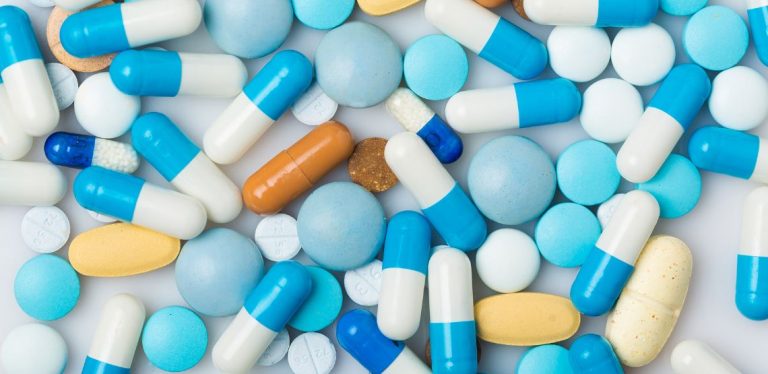How to Spot & Treat Ulcerative Colitis
Ulcerative colitis (UC) requires ongoing treatment and management to control symptoms. In this article we'll look at medications like Entyvio (a biologic therapy) and other options to speak to your doctor about.
1. Entyvio (Vedolizumab)
Entyvio is a highly effective medication that works by targeting specific molecules in the body's immune system that contribute to inflammation in the intestines, helping to reduce symptoms. It helps reduce inflammation and promote healing in the colon lining. Patients often experience symptom improvement, a reduction in the frequency of flare-ups and in some cases, complete remission. Some side effects may include headache, joint pain, nausea and fatigue.
This medication is a biologic therapy. Biologics are a type of medication that target specific proteins or cells within the immune system to reduce inflammation. They’re good options for patients with moderate to severe UC, or patients who don’t respond well to other medications.
2. Medication Management
- Aminosalicylates: These medications are often prescribed as the first line of defense for mild to moderate cases of UC. They work to reduce inflammation in the colon and are effective for many patients.
- Corticosteroids: Corticosteroids like prednisone are usually prescribed for short-term use to manage flare-ups or sudden worsening of symptoms. They help to reduce inflammation quickly but come with risks of side effects, making them unsuitable for long-term use.
- Immunomodulators: Drugs like azathioprine and mercaptopurine suppress immune system activity, helping reduce inflammation and maintain remission.
3. Small Molecule Drugs
Small molecule drugs have become available for UC treatment and have been shown to be quite effective in managing symptoms. These drugs, such as Janus Kinase (JAK) inhibitors, target immune pathways differently than biologics, offering new options for patients who have not responded to other treatments.
4. Lifestyle and Dietary Modifications
While diet alone cannot cure UC, it can help manage symptoms. Dietary recommendations often include:
- Low-fiber diets during flare-ups to reduce irritation.
- Avoiding triggers such as caffeine, alcohol and spicy foods.
- Staying hydrated and considering small, frequent meals to minimize digestive stress.
5. Surgical Options
In more severe cases or for those who are less responsive to medication, surgery may be necessary. This can involve removing parts of the colon, which can effectively cure UC. However, it is important to note that this can also lead to other challenges and lifestyle adjustments.
Common Symptoms of Ulcerative Colitis
Recognizing UC symptoms early can lead to better management and treatment outcomes. Common symptoms include:
- Persistent diarrhea: Often accompanied by blood or pus.
- Abdominal pain and cramping: Especially on the left side of the abdomen.
- Urgent bowel movements: With an inability to hold bowel movements.
- Fatigue and fever: Common during flare-ups, leading to a lack of energy.
- Unexplained weight loss: Caused by nutrient absorption issues and appetite loss.
When to Consult a Doctor
It's essential to reach out to a healthcare provider if your symptoms become frequent or if you experience severe pain, increased bleeding or persistent diarrhea. You might also notice fever, joint pain, eye irritation, severe fatigue or weight loss.
